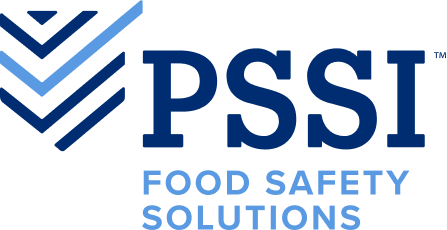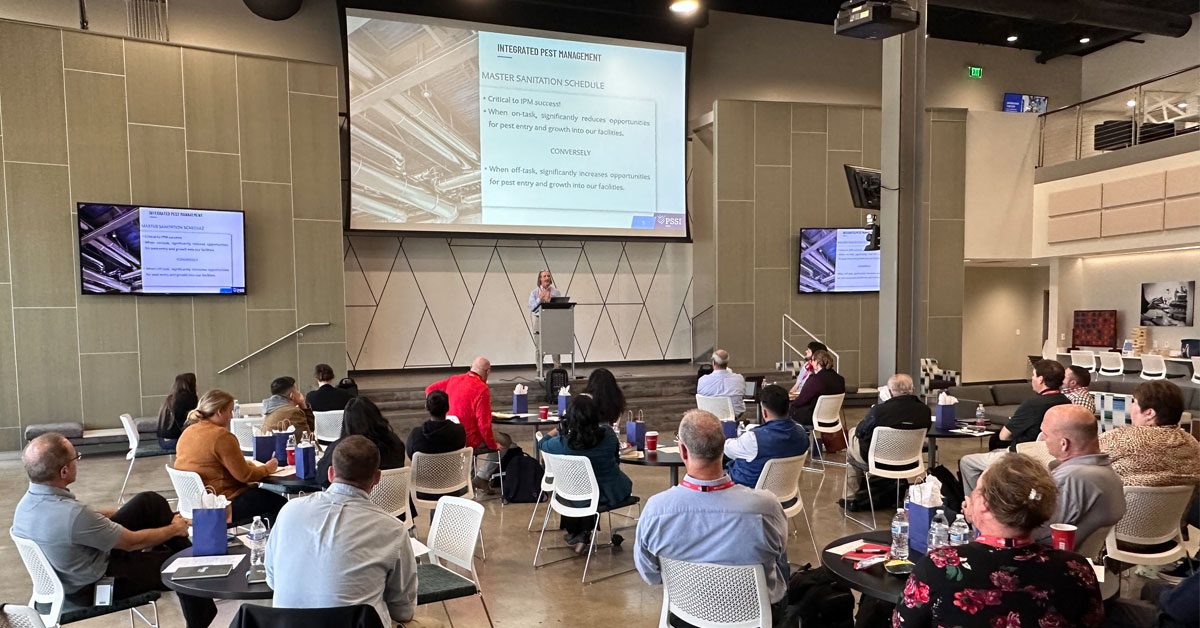In early November, PSSI hosted our second annual Food Safety Workshop at our Safe Foods Chemical Innovations location in North Little Rock, AR. The event, focused on proactively partnering to advance food safety, included a healthy line-up of educational sessions mixed with small group breakout sessions. The event provided attendees with information on current and emerging food safety issues, innovative solutions to new and recurring problems, and the opportunity to network with food safety professionals from across the US.
Our agenda this year focused on the importance of maintaining a “Clean Kitchen,” emphasizing the impact of a well-designed and executed Master Sanitation Schedule (MSS). The event kicked off with a session dedicated to building, maintaining, and verifying a Master Sanitation Schedule hosted by Lance Olsen, Sr. Food Safety Manager, PSSI F.A.S.T. This was followed-up with a session hosted by Brad McGowan of PSSI Pest Solutions focused on Integrated Pest Management and the impact of the MSS on managing the food safety risks associated with pests.
“Last year we focused on the importance of sanitary design as a foundation of effective food safety and sanitation,” said Scott King, VP of Food Safety. “This year we wanted to demonstrate how sanitary design and an effective MSS work in unison to achieve food safety objectives. Gaps and challenges in sanitary design are often best-off set by more rigorous periodic infrastructure cleaning (PIC) or periodic equipment deep cleaning (PEC). Our customers rarely live in a perfect world where the facility and equipment they operate are of ideal design and optimized maintenance, therefore we must find creative solutions to help them maintain the integrity of their operation to deliver safe food each day.”
On the second day, a regulatory perspective was presented by a representative from the FDA, focusing on the ongoing reorganization efforts and the objectives behind them. The importance of root cause analysis for developing prevention strategies was underscored. Following this, a Senior Advisor highlighted sanitation verification and validation best practices, emphasizing routine verification of MSS tasks to prevent environmental pathogen and pest harborage. A case study on Vorclone, a new technology aimed at improving microbiological performance and reducing waste in process water, was shared by Dr. Lindsey Perry from Safe Foods Chemical Innovations.
We concluded our educational session with a presentation by Josie Greve-Peterson, Corporate Microbiologist, who provided an overview of the Microbial Control Equation as a tool for understanding all aspects of environmental micro control and how the aspects of the equation affect customers who are seeking to introduce a less than daily sanitation cycle for some of their operations. Most importantly, we put these tools into practice by going into the plant and building and verifying an MSS together to help attendees understand how they are used and how they can be applied in their day-to-day operations. The workshop was another great example of how, together, we can partner, learn, and grow to advance our shared mission of keeping food safe for all.

